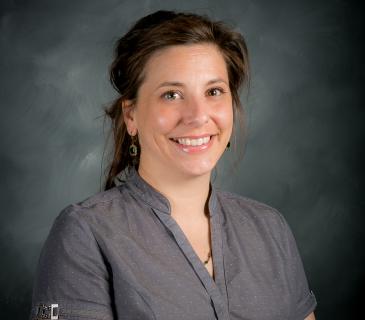Denise M. Kay, Ph.D.

Newborn screening, beginning with implementation of the 'PKU test' for phenylketonuria in the early 1960's, is one of the most successful public health programs in the US. Within days of birth, blood samples are collected via heel stick onto Guthrie filter paper cards, and samples are screened for a panel of biomarkers for treatable, congenital disorders.
The goal of newborn screening is to readily identify and rapidly treat, delay or prevent illness, intellectual disability, or death. The New York State Newborn Screening Program at the Wadsworth Center screens all infants born in NYS for more than 40 conditions including inherited metabolic disorders, hemoglobinopathies, congenital hypothyroidism, severe combined immunodeficiency (SCID), lysosomal storage disorders and other genetic conditions such as cystic fibrosis (CF) and spinal muscular atrophy (SMA).
Dr. Kay studies the genetics of diseases affecting infants and children, including conditions screened by the newborn screening program, and congenital malformations (birth defects). Her research utilizes both targeted and genome-wide approaches to identify and characterize mutations, susceptibility alleles and interactions in novel and known disease genes and pathways, using genetic, epidemiological, statistical, and bioinformatic approaches.
Ongoing work includes:
- Characterization of CF sequence variants/mutations in the diverse NYS population;
- Evaluation of outcomes following implementation of a three-tiered CF newborn screening algorithm that includes next generation sequencing;
- Implementation of universal newborn screening for SMA;
- Validation and assessment of utility of a multi-gene next generation sequencing panel for newborn screening;
- Identification of novel risk factors for various congenital malformations using whole exome sequencing.
Other interests include improving existing newborn screening mutation panels and addressing challenges to implementation of next generation sequencing and expanded genetic screening in the newborn screening setting. The ultimate goal is to translate knowledge gained from these studies into routine public health practice.
